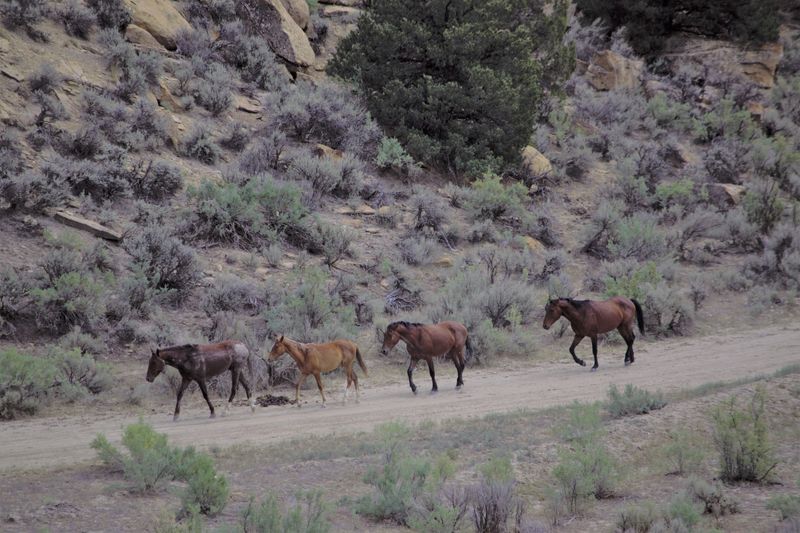By Keith Coffman
DENVER (Reuters) - Laboratory (NYSE:LH) tests have pinpointed the equine virus suspected of triggering an outbreak of a respiratory illness that has killed at least 95 captive wild horses in less than a week at a federal corral in Colorado, U.S. government officials said on Thursday.
Results of polymerase chain reaction (PCR) tests from two leading U.S. veterinary diagnostic labs detected the equine influenza virus in nasal and lung tissue samples taken from several horses, the U.S. Bureau of Land Management (BLM) said in a statement.
The virus strain, an equine influenza designated "subtype H3N8," is not uncommon in both wild and domestic horses, but is unrelated to an outbreak of a highly contagious bird flu striking wild birds and poultry across the United States in recent days, the BLM said.
The PCR testing also has identified two equine herpes viruses (EHV-2 and EHV-5). But BLM said those commonly occur in normal, healthy horses, and it was unclear whether herpes was a contributing factor in the respiratory illness.
The outbreak emerged April 23 at the BLM's Wild Horse and Burro Corrals in Canon City, Colorado, about 120 miles (190 km) southwest of Denver, housing more than 2,500 wild mustangs rounded up from public range lands in the region.
Ten horses had died by last Saturday, with the death toll climbing to 95 animals as of Thursday, the BLM said. The entire facility was quarantined while managers separated animals that were sick or exposed to infected horses from those appearing healthy, BLM spokesman Steven Hall said.
Most of the sickened horses had been transported from Rio Blanco County in Colorado, near the Utah state line, in an emergency roundup last fall following a wildfire in the area, BLM said.
While the H3N8 virus was identified as the likely cause of the outbreak, smoke inhalation and extremely dusty conditions in the pens where the Rio Blanco horses were kept may have left them especially susceptible to respiratory infection, a veterinarian report released by the BLM said.
The stricken horses suffered pneumonia-like symptoms characterized by fluid in their lungs, fever, coughing and labored breathing, according to the vet report.
Wild horse and burro herds are not native to the United States, but are descended from animals freed or abandoned by miners, prospectors and others during settlement of the American West.
Numbering an estimated 80,000 in the West, the BLM says the animals must be managed because they foul water supplies and consume forage at the expense of native species.
The agency conducts periodic roundups, moving the animals to holding areas where some are put up for auction. Activists say the roundups and living conditions for the captive animals are inhumane.
